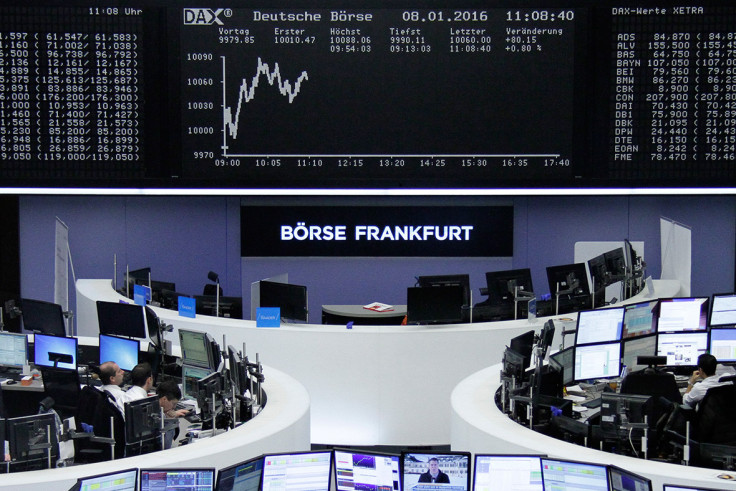European stock market falls flat on German export slump amidst oil production worries from Gabon military coup
The European stock market fell by nearly one per cent as Christine Lagarde was asked to set inflation targets that factor in energy prices and geopolitics.

The first week of September began on a sad note as the stock market in Europe fell flat after riding a three-week high and a military coup in Gabon affecting the prospect of oil production.
On Monday, August 4, the European stock market ended its rally by closing flat and losing the momentum of the past three weeks. In August, the stock markets in Europe appeared to shed most of its negative spiralling.
While a US job market report made travel and leisure stocks gain by 0.5 per cent due to high equity sentiments, there were signs of slowdown which could affect Federal Reserve hawkishness. This comes at a time when the Asian markets are rallying because of US job data ease.
Speaking about this bearish trend in the European stock market, HSBC's Chief Multi-asset Strategist Max Kettner said that all eyes were on prospective five rate cuts by the Fed in 2024. Equities are anxious to know if the Fed will deliver rate cuts on currently priced markets.
Kettner ruled out any chance of a recession in the US in 2024, saying that "recession was never on the cards". According to Kettner the US manufacturing sector is doing quite well and they are likely to pace up in the coming months. Kettner's comments came at a time when US stocks shredded inflation data.
This week began with the European basic resources sector closing at 0.6 per cent higher than usual while China announced fresh packages to support the real estate sector of the country.
Speaking of global inflation, the European Central Bank president Christine Lagarde advised central banks across the world to set their inflation targets factoring in energy price fluctuations and geopolitical sensitivity. Lagarde termed this "critical" issue at a recent event organised by the European Economics & Financial Centre in London where she was a distinguished speaker.
The week also started with the German exports decreasing by 0.9 per cent month-to-month in July. In contrast, the month-to-month imports of Germany increased by 1.4 per cent, as per German trade data. This is nearly half of the 1.5 per cent month-to-month slump in German exports in July as predicted by economists polled by Reuters.
Experts believe that the plunge in the European stock market is a fall out of this decline in exports in Europe's largest economy which is slowing down many sectors.
Retail company Superdry stocks also declined by 18 per cent, hitting an all-time low as shares of the British clothing line opened at a delayed time at 1:58 pm GMT. The Superdry stocks in London started trading again on Monday after a three-day suspension.
Earlier on August 30, Superdry suspended the stocks as its annual report was delayed because of a final review by the auditors. On Friday, September, the company published the results which showed a £21.7 million pre-tax loss. Compared to that, Superdry made £21.6 million profit last year.
Speaking about this loss, the CEO of Superdry Julian Dunkerton termed it as a "difficult year" as market conditions are very challenging.
Gabon military coup making the oil market tense
Meanwhile, shares of the Irish oil company, Tullow Oil went down by 12.8 per cent last week. This is an aftershock of military officials in Gabon declaring a coup on the West Coast of Central Africa. Tullow Oil had many offshore and onshore oil fields in the area and any unrest is likely to affect the company's output.
However, Tullow Oil declined that political unrest may affect the company's production saying its operation continues unhindered. The company is monitoring the situation and assisting the operators working in its fields.
Gabon is the biggest contributor to Tullow Oil's production and the company has various partners in the area including Perenco, an Anglo-French oil group and Maurel & Prom, a Paris-listed company.
According to the company's latest annual report, the daily offshore oil production from the region in 2022 was 14000 barrels of oil on average which accounted for £477 million of revenue. So, a substantial portion of the £2.01 billion annual revenue of Tullow in 2022 came from Gabon.
Moreover, the company signed an asset swap agreement with Perenco earlier in 2023 which will optimise its equity interest in the oil fields of Gabon. This has resulted in getting an extension of licences till 2046 from the Gabon government earlier last month.
However, now the situation is tricky as military officials have seized power from President Ali Bongo Ondimba after he won a third term of governance. The officials have cancelled the election results, dissolved all state institutions and closed down the borders.
While Gabon's former colonial power France condemned the coup, the people of the country took to the streets celebrating a relief from half a century of rule of the Bongo Ondimba family.
This plummeted the shares of Tullow as it declined 6.6 per cent on Monday. The company's market value now stands at £495.6 million.
© Copyright IBTimes 2025. All rights reserved.




















